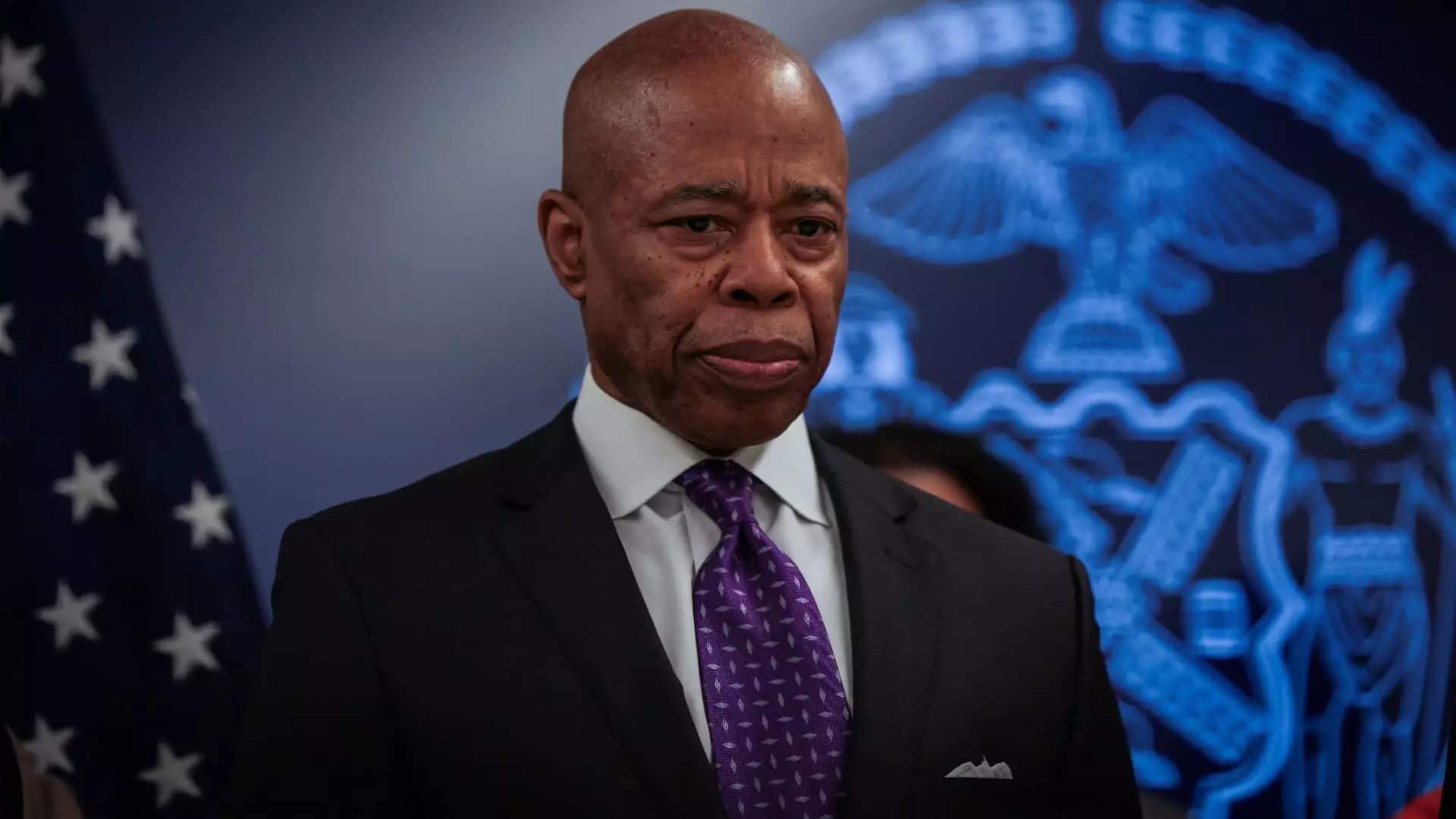The recent developments surrounding New York City Mayor Eric Adams have surfaced an intricate web of political machinations, accusations, and potential corruption. A significant ruling from U.S. District Judge Dale Ho has underscored the ongoing tensions between the city’s governance and federal authorities. In an unprecedented move, Judge Ho has declined to dismiss the corruption case against Adams, even as the Justice Department seeks to shield him from these charges, igniting a political firestorm that reverberates through the ranks of the local Democratic Party.
The judge’s decision to delay proceedings indefinitely reflects both legal complexity and heavy political implications. His appointment of Paul Clement, an external attorney, to argue against the Justice Department’s request is a clear signal that the judicial system is grappling with conflicting interests. The Justice Department, under Acting Deputy Attorney General Emil Bove—an appointee from the Trump administration—has expressed the need to dismiss corruption charges against Adams. This request appears to be less about the merits of the case and more about facilitating Adams’ ability to focus on pressing issues such as immigration policy, given his perceived alignment with former President Trump.
Such dynamics raise fundamental questions about the integrity of both the legal proceedings and political motives. The involvement of a legal team with existing political ties speaks to a broader strategy that could be perceived as an attempt to manipulate legal outcomes for operational convenience. The implications for the justice system’s independence are profound, raising concerns about the potential for political negotiation eclipsing legal accountability.
Adams faces serious allegations surrounding campaign contributions and potentially corrupt dealings with foreign nationals, particularly Turkish individuals. Such accusations are exacerbated by his ongoing re-election campaign, leading critics to argue that the charges are not only valid but also essential to investigate. By pleading not guilty, Adams positions himself as fighting against what he insists are politically motivated attacks emanating from the Democratic establishment he criticizes.
In contrast to the assertions made by the Justice Department, Adams has attempted to frame the charges as retribution from the Biden administration, particularly due to his open criticisms of the president’s immigration policies. This rationale, however, lacks solid evidential backing and may reflect his efforts to divert scrutiny away from legitimate concerns regarding his conduct.
The fallout from the Adams case goes beyond legal troubles; it is fundamentally reshaping the political environment within New York City. Calls for Adams’ resignation have erupted from leading figures within the Democratic Party, alongside rising dissent among his own administrative team. The resignation of several prosecutors, including rising legal star Danielle Sassoon, illustrates a phenomenon where legal ethics clash with political loyalty, further complicating the narrative surrounding Adams and his administration.
Governor Kathy Hochul’s declaration that she will not intervene to remove Adams signals a reluctance to escalate the crisis further, though she has proposed heightened oversight of the mayor’s office. This response encapsulates the broader unease among New York’s Democratic leadership as they navigate the complexities of their party’s image amidst scandal and disunity.
As the situation develops, the intersection of law and politics will undoubtedly remain in the spotlight. With Adams’ legal battles threatening to overshadow his administration, the focus on transparency and accountability in New York City governance is paramount. Meanwhile, the Justice Department’s role and the motivations behind its actions will continue to be scrutinized as key players on both sides of the political spectrum assess the repercussions of this unfolding drama. The resolution of this corruption case will not only define Adams’ political future but also serve as a benchmark for the integrity of political structures in an era increasingly fraught with suspicion and challenge.

Leave a Reply